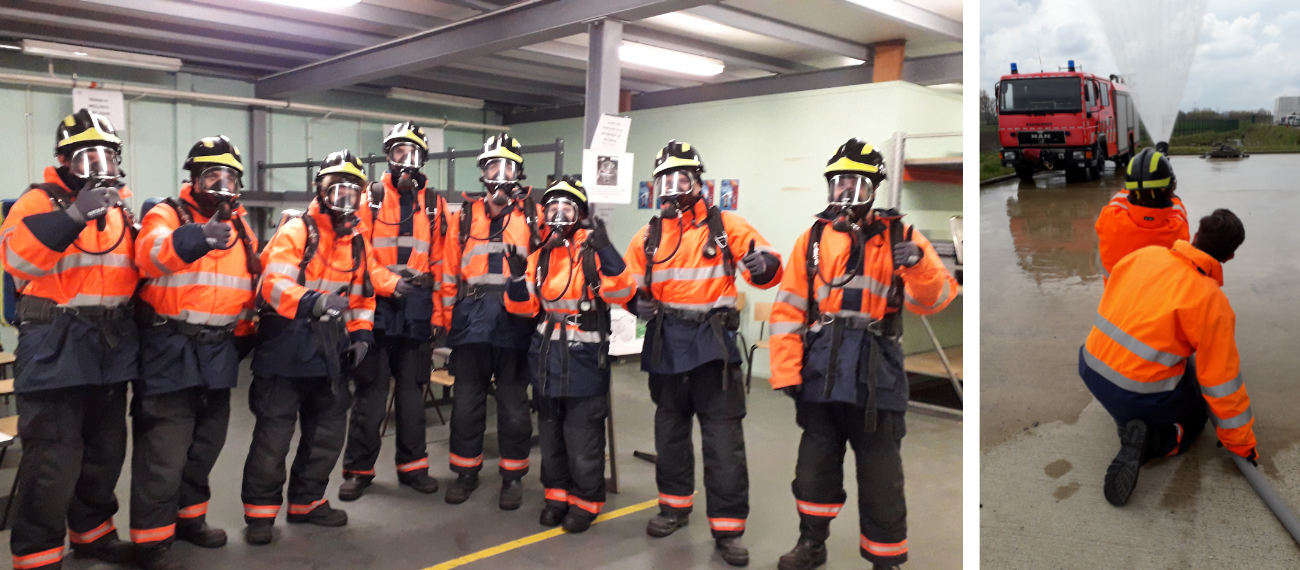The Belgian pilot team is getting ready for offshore operations

When you are offshore, safety comes first! At the end of April, Annelies Declercq from the Belgian pilot team attended a STCW (Standards of Training, Certification and Watchkeeping for Seafarers) training, requested by the Belgian authorities to enter the offshore wind farms on a ship. The course focused on cardiopulmonary resuscitation (CPR), personal safety, social responsibilities, fire prevention and extinction.
“These skills are essential when you are offshore” says Declercq, “and we also realized how crucial group effort is in a crisis – and even more so at sea”. Declercq recalls some key tips on fire prevention and first aid:
- When flames become “dancing angels”, the fire can no longer be extinct easily – and that happens within minutes! So correct action is crucial.
- For CPR, the key is not to panic and respond immediately – although this is more easily said than done! After someone’s heart stops, the first brain damage occurs after 4 minutes; after 8 minutes, the brain damage is irreversible and the person will probably be brain dead.
- In case of a cardiac and respiratory arrest, ventilation – next to heart resuscitation – is required when emergency aid will take longer than 20 minutes to arrive (approximate time of arrival of an ambulance on land). As at sea it usually takes at least an hour for the rescue services to arrive, possibly longer in case of bad weather/offshore conditions, ventilation is hence crucial. And, of course, a person with a cardiac arrest will need an AED-shock.
The good news is that all necessary equipment is usually available on board and, thanks to this training, Declercq is now able to use the tools.

The Belgian pilot team getting ready for their safety course.
